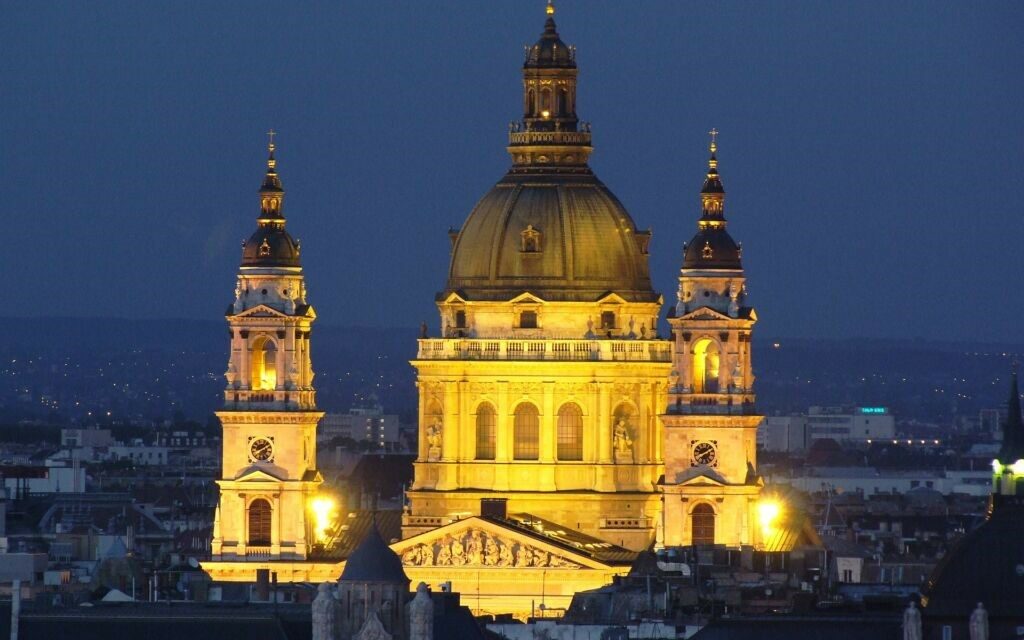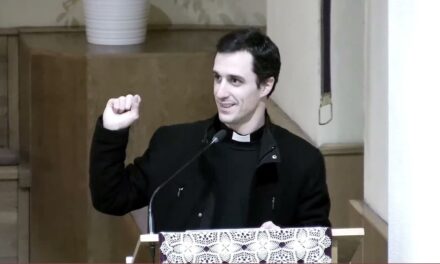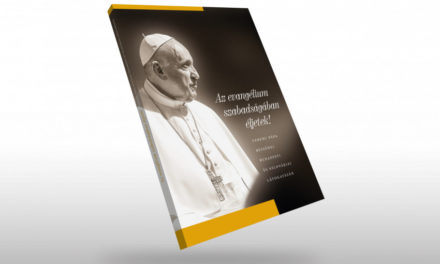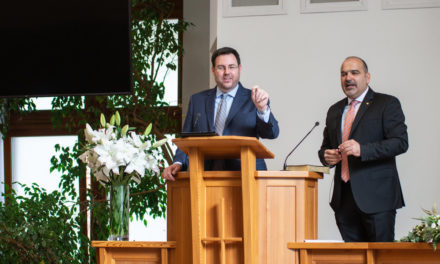This makes it even truer: if it turns out during the evening headcount check that a significant part of the flock has wandered off, then the shepherds have quite a bit of work to do.
Now that the results of last year's census have become public, a kind of voluntary, second-round census has begun: in long lines of Facebook comments, those who did not answer the "Religion" question come forward to declare that they actually directly hid their faith ("I filled in my parents' as well, so they didn't become Catholics either, winking smiley"), thus punishing the "collaborating church" and "priests who politicize from the pulpit". On the basis of which we can definitely conclude that there can be at least far more cultural Christians than are counted - but for the sake of those who think that Enlightened Intellectualism is slowly crushing the little idiots, we should also note that, in addition, the number of Christians with a degree is the black and white census data according to increased, given that
the rate of decline was the smallest among those with higher education.
At the same time, of course, it would be a criminal folly to say that there is nothing to see here - however, anyone who traces the decline of large churches to a single reason, can be quite sure that they are wrong. There is, for example, the popular explanation that "people are not willing to take communion with the priests of Fidesz". Married. For the sake of simplicity, let's take only Catholics: their number fell from 5.6 million to 3.9 million (= minus 1.7 million) between 2001 and 2011 without any NER, so that the number of non-respondents increased by 1.6 million; Between 2011 and 2022, this further decreased from 3.9 million to 2.9 million, with another 1.2 million non-responders.
Therefore, if in recent years the majority of defectors had turned their backs on their church specifically because its pastor was a loud Fidesz or because "Christianity also flows from the tap", this would mean that the even more significant, other however, it was possible to stop the apostasy that can be traced back to other reasons. Which would be nice, but unfortunately not likely; especially since at the beginning of the 2000s, the number of people belonging to large churches decreased most drastically (almost by half) in the age group in their twenties, where the majority of children were born between 2011 and 2022 -
perhaps we should not deceive ourselves by thinking that if Fidesz did not exist and there were no newly built church kindergartens, then these parents would struggle more around the baptismal font today.
No, the dear atheists should not laugh at this point: even though some of the current generation - which by the way goes next door with GPS - thinks that it does not need any kind of heavenly guidance to lead its life, this is still a thousand-year-old Christian country.
The situation is further shaded if we place a completely objective statistic next to the census data, namely the 1 percent donations . In 2003, 417,000 citizens gave 1 percent of their taxes to the Hungarian Catholic Church, 618,000 in 2011, 767,673 last year, and 803,070 this year. Only in 2017-2018 was there a break in the upward trend, but it was followed by a rebound.
Compared to last year, the number of donors increased by 35,397; but there was a similar increase among the Reformed and Evangelicals.
Gábor Iványi's church also received 21,568 more offerings, which, no matter how we look at it, is less than the increase of Catholics.
It is therefore possible that although many dropouts claim that they are no longer willing to support the church, they actually did not support it before even by filling out a paper (or, on the contrary, they did not break away so much that they withdraw their 1 percent offering), otherwise the tax statistics something of the decrease would also be visible. This also indicates that the faithful who practice their faith consciously, who even take a personal role in the church (by charity work, church cleaning, voluntary office work, etc.) , but the more loosely connected ones.
And then we come to the priests campaigning from the pulpit as a constant reference point (it's a miracle of probability that the fewer times a person went to church in his life, the more often he ran into party propaganda). Put your hand on your heart to all those who argue this: if you were given a list today of all the priests at whose masses practicing believers like ourselves have never once heard politics in the last 13 years, would you take the trouble to go to one of them next Sunday, with that open heart? , that "okay, I'll give it another chance, and if there's really no politics, I'll get used to it"?
I wish it were so, but we can guess that the following excuse would usually come immediately: "but that's the bishop!", "but that's the politician!".
If, on the other hand, someone's religious life is determined by who are the current leaders or supporters of the given church, and anyway, it's not Gábor Iványi (who didn't sit in Kötcsé, but raised his voice throughout the election meetings of the opposition coalition), then there is nothing to prevent him from transfer to the Hungarian Evangelical Brotherhood and celebrate the Lord's Day on Sundays in Dankó Street. But for some reason we don't see this - it's such a strange phenomenon that the modern Christian pursues his faith independently, "in his own way", he doesn't need any kind of frail community, instead he joins all kinds of online "groups" and "communities", where strangers can skillfully like him each other, to confirm that there is no need for priests. Jesus Christ surely did not know enough where the way, the truth and the life lie when he not only said things like "he who listens to you listens to me, he who rejects you rejects me", but he also firmly stated that the gates of the underworld do not gain strength in this church.
It is absolutely clear: if it turns out during the evening headcount check that a significant part of the flock has wandered off, then the shepherds have a lot of work to do. At the same time, Jesus Christ addressed the speech not only to the apostles, but to the whole crowd, according to which "You are the salt of the earth. If the salt loses its taste, how is it salted? It is not good for anything other than to be thrown away and trampled on by people. You are the light of the world. A city built on a mountain cannot be hidden. And if they light a candle, they don't hide it under the bucket, but put it on the holder so that it lights up for everyone in the house. In the same way, let your light shine for people, so that they may glorify your heavenly Father when they see your good deeds!"
So the task is big, but not hopeless. In contrast to the 2000s, we have already won the 2000s in terms of public life, but we still seem to be weak in terms of faith.
Moreover, not the priests, not the government, but: all of us, the Hungarians who confess, hide or deny their Christianity. Those who have become lazy during covid, those who don't know how to pray, those who indulge in teaching, those who are disruptive in church school, those who are too strict, those who are too lenient, those who fight for likes, those who don't dare to speak up, those who only criticize, those who leave everything to others, the stingy, the greedy , those who are not obligated, those who offend others, those who slander in the blind, those who disregard Sunday, those who neglect their duties as godparents (present) - everyone is free to continue the line with their own little act or omission. But the funny thing is that in the case of sincere sorrow, we always have forgiveness and the possibility of starting over every day.
And thank God there is an old, well-proven recipe, you just have to dust it off and keep it in mind for the next ten years:
By 2033, everyone should bring (back) one more person with them!
Featured Image: Pixabay













